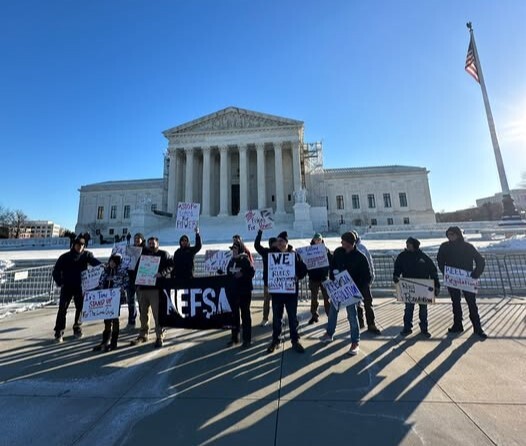A federal court ruling has cast doubt on the legitimacy of the New England Fishery Management Council’s (NEFMC) member-appointment process, marking a partial victory for the New England Fishermen’s Stewardship Association (NEFSA). The U.S. District Court for the District of Maine found that the council’s appointment system violates the U.S. Constitution, a decision that aligns with NEFSA’s long-standing claims about undemocratic practices in fisheries management.
According to NEFSA’s press release, the court determined that the NEFMC’s unelected members wield significant power over fishermen in five states without sufficient oversight from elected officials or the President. "NEFSA is pleased that the court agreed there are constitutional problems with the council," said NEFSA CEO Jerry Leeman. "But this is only a partial victory. The court rewrote the statute to salvage the regulations that are driving fishermen off the water and decimating our coastal communities. NEFSA is carefully considering an appeal."
The NEFSA v. Raimondo lawsuit focused on the council's role in imposing burdensome regulations, including Framework Adjustments 65 and 69, which implement long-term cod rebuilding plans. According to Seafood Source, these adjustments have drawn sharp criticism from fishermen, who argue that they threaten the viability of New England’s fisheries.
“When I was a vessel captain, the New England Fishery Management Council controlled every facet of my business – from catch quotas to conservation measures,” Leeman said, as reported by sources. “Despite the significant power council members exercise, they are shielded from democratic control and political accountability. We live in a democracy, and our fishery is a public resource. The public needs to be able to participate in its management and care.”
The court’s ruling declared the council’s structure unconstitutional because its members are not appointed by the President or a cabinet secretary, as the Constitution requires. Additionally, some members hold their positions due to state appointments or by virtue of being state bureaucrats, with limited avenues for removal, even by the President.
NEFSA’s press release noted that this decision marks the third federal court ruling to identify constitutional defects in the fishery management councils established by the Magnuson-Stevens Act. It also highlighted the broader implications for the New England fleet, which faces dwindling participation as regulations deter younger generations from entering the trade.
Leeman and NEFSA remain cautious in their optimism, emphasizing that the battle is far from over. The organization hopes the ruling will pave the way for a more transparent and democratically accountable regulatory framework.







